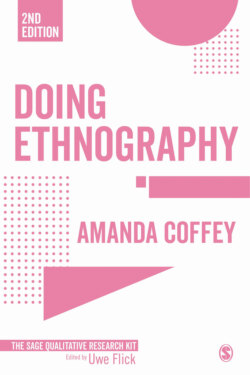Читать книгу Doing Ethnography - Amanda Coffey - Страница 16
На сайте Литреса книга снята с продажи.
Postmodernism
ОглавлениеThe postmodern turn in social science provides a methodological backdrop for contemporary ethnography, influencing the methodology and practice in a number of ways (Fontana and McGinnis, 2003). In simple terms, postmodernism represented a rejection of an objective reality and science, in favour of a more complex, nuanced, multi-layered understanding of the social world. Postmodernism, which can be taken as a movement influenced by and influencing a variety of theoretical and methodological approaches – including feminism but also postcolonialism, critical theory, critical race theory and queer theory among others – recognizes and celebrates a diversity of perspectives. Postmodern approaches to understanding and theorizing value the importance of the understanding of context for making sense of behaviours and meanings. Moreover, postmodern approaches raise important questions about power and authority in social research and the production of knowledge. There comes with postmodernism a critical questioning of hegemony and an inherent belief in providing opportunities to ‘give voice’. There is also the recognition that social worlds are multiple, layered and polyvocal, and that there are many voices to be heard; also that social worlds are dialogic, constructed by social actors who bring with them different histories, biographies and experiences. Hence there is a fundamental articulation of social worlds as socially constructed and represented, where the self gets positioned and repositioned within and through social and cultural contexts. Thus, in relation to postmodern ethnography, there is a focus on exploring and recognizing the contexts through which social worlds are constructed and lives lived, as well as on providing more nuanced vehicles for documenting social worlds and taking into account the multiple voices that are present and must be heard. Postmodern approaches to ethnography have placed a particular emphasis on the products of ethnography and on finding alternative ways of representing and reporting social data, in order to better give voice to, and to work with rather than on, social actors in research settings. In so doing, postmodern ethnographers have also posed questions about power and authority in our research encounters, as well as about the authoritative text of the scholarly ethnographic monograph.
